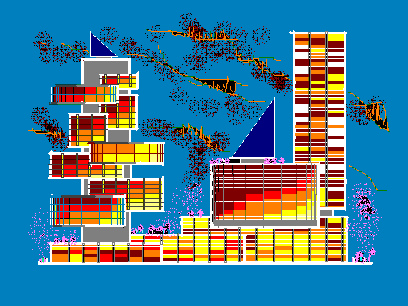|
Hong Kong: A Real Estate Fund of Funds? Part 2
Stephen
Chung Managing Director
Zeppelin
Real Estate Analysis Limited
May 2006
In the first part of this article, we have given the rationale for having a fund of real estate funds / REIT. In this second part, we shall take a brief look at the performance of the few locally (Hong Kong) based REITS (real estate investment trusts) and compare them to a couple of very popular publicly listed real estate company equities. Here we go: a) Data sources = mostly from web-based data and information, in particular those from the Hong Kong (Stock) Exchange at http://www.hkex.com.hk/index.htm and the HSBC website at www.hsbc.com.hk
b) REITS = the currently listed 3 are observed, namely the GZI REIT, the LINK REIT, and the Prosperity REIT. The first one is involved in Mainland China real estate while the latter two are concerned with Hong Kong properties
c) Popular publicly listed real estate stocks = there are quite a few but for simplicity, we have selected Cheung Kong Holdings and Sun Hung Kai Properties. Both have business operations other than real estate and are huge in terms of capitalization
d) Period = starting from early January 2006 and ending in late April 2006 to allow for synchronized timing And these are some of the preliminary observations: 1) The REITS to date do not necessarily correlate in terms of unit price (share price) performance = summarily, the LINK REIT outperforms the other 2 in terms of unit price performance, rising close to 20% during the period while the others dropped by 10 to 15%. If one counted from the initial offer price, the LINK REIT would have risen almost 80% at some point. All 3 REITS can be considered relatively new as most have been listed for no more than 6 months. In terms of correlation, the LINK REIT has little connection to the other 2 (in any event a negative relation, if any, appears to exist) which in turn do exhibit some correlation between them with a R2 of around 0.65. Technically, 6 months is too short a period for drawing any significant insight though this may offer a clue on how things may evolve, especially when the market expects more REITS to come.
2) The REITS to date also do not seem to correlate much with real estate equities in terms of unit price performance = we have compared the 3 REITS to that of Cheung Kong Holdings (Stock Code 0001) and Sun Hung Kai Properties (Stock Code 0016) and there seem to be no significant relations between these REITS and the selected real estate stocks, although the two real estate stocks tend to have some correlation in share price movements over the period. This is in some ways interesting because in terms of real estate geographies (e.g. Hong Kong) and sectors (e.g. retail, office), the LINK REIT and Prosperity REITS collectively do share some, not a lot but some, common characteristics with the two listed real estate stocks, i.e. both REITS are involved in Hong Kong commercial properties and such properties are also an important component in the two stocks, notwithstanding the LINK REIT ones originated from government-managed housing estates, or for that matter, the two real estate stock companies have operations beyond real estate and Hong Kong.
¡@ 3) LINK REIT won this round = not only over the other 2 REITS but also the two listed companies during the period, notwithstanding the listed companies also gave a positive return of around 10-15%.
Assuming the above trend to continue, or at least to remain a possibility, then it makes sense to regard REITS not only as an added alternative (not as an exclusive substitute for) to publicly listed real estate stocks, but also as separate and individually managed entities among themselves. In short, just as an investor would not view all publicly listed stocks as being the same, an investor needs not view REITS as being similar. To date the data seems to suggest they are indeed not one and uniform. As such, the opportunity for an experienced real estate investment team to add value via operating a fund of real estate funds / REITS could become a reality someday as REITS grow in numbers.Notes: The article and/or content contained herein are for general reference only and are not meant to substitute for proper professional advice and/or due diligence. The author(s) and Zeppelin, including its staff, associates, consultants, executives and the like do not accept any responsibility or liability for losses, damages, claims and the like arising out of the use or reference to the content contained herein. |
||||||||||||||||||||||||||||||||||||||||||||||||
Phone (852) 37576388 Fax (852) 37576399 E-mail contact@real-estate-tech.com
Address c/o Zeppelin, Unit 1007, 10/F, CCT Telecom Building, 11 Wo Shing Street, Shatin, NT, Hong Kong
Copyright rests with Zeppelin and/or relevant authors

